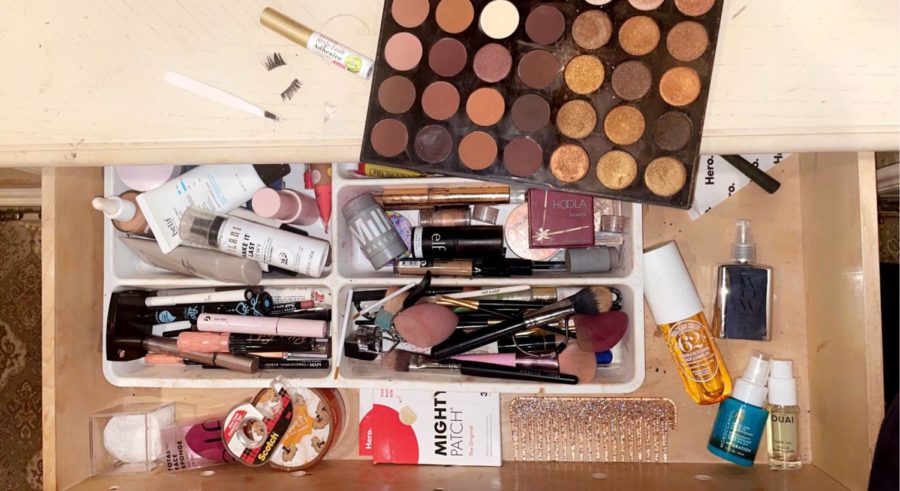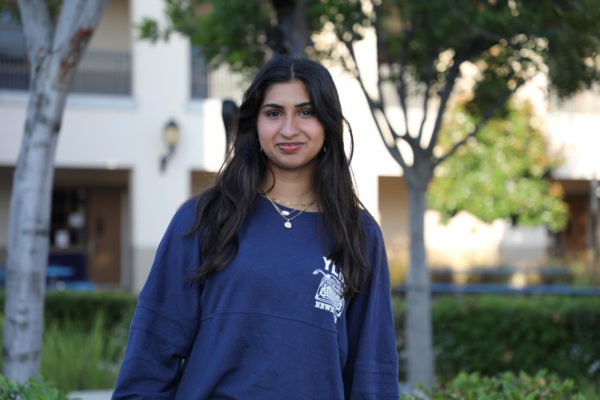The Truth Behind Makeup Consumerism
Intense consumerism is everywhere and the makeup industry is just one small corner of it.
March 14, 2022
The makeup industry is worth $511 billion, and that number is only going up. Makeup is used daily by about 52% of all women according to a 2015 survey (civicscience.com). Another thing to consider is that makeup is used by almost all ages, from products targeted towards small children from the age of just three and other products, such as anti-aging products, targeted towards older consumers. Because of this huge range of consumers, there is a wide range of different products and different companies in the makeup industry.
Another factor that has contributed to the extreme popularity of makeup is influencers and “beauty gurus” that post reviews and tutorials using a number of different products. These types of videos trigger the “want” section of our brain that makes people eager to purchase something that they’ve seen to achieve the look that they want. With this comes mindless consumerism and consumption.
What this means is that a person is given the sense that this product will affect their well-being and happiness. They begin to think that these things will only happen when they have obtained material possession. This consumerism becomes drilled into people’s brains and causes them to consume much more than needed. An extremely common example of this is the makeup haul culture where people will post videos of them showing their collection of the same items that they may not need to have but feel that they do.
Big companies and entrepreneurs alike take advantage of this consumerism and use this to head-start their own ventures. If you are a habitual makeup consumer you are most likely to have seen new companies popping up left and right each with its own somewhat unique spin and huge claims. These companies then send their products to the influencers and “beauty gurus” of the world who are obligated to advertise said products and stimulate people’s need to purchase.
Another thing that we have seen is the rise of celebrity or brand ambassador makeup companies. A number of well-known celebrities have ventured into this space to see how lucrative it is and how many returning customers there are. People such as Selena Gomez, Jennifer Lopez, and Rihanna have all made a mark in this industry, and there will surely be more to follow. A student at YLHS Nikole Galea (10) said that “Even though I don’t wear a lot of makeup I do find myself constantly wanting one product or another, usually because of things like TikTok or other people’s recommendations.”




































Giana Mejia • Feb 23, 2023 at 7:43 AM
I love this article, 100% agree. I’ve caught myself spending lots of money on products like the Rare Beauty Blush because of advertisements